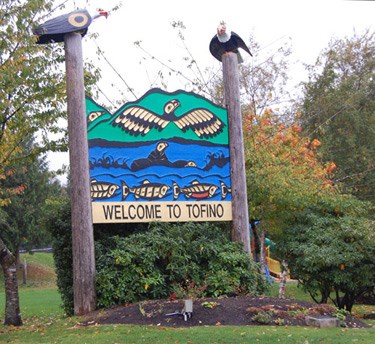Tofino is losing its bottle-return depot, which some say will hurt “the little guy” most and represents problems shared by many small municipalities.
Ann Kim, who owns the Tofino Bottle Depot, said she made the decision to close its doors in March, after months of deliberation.
“Due to space and parking limitations, we can no longer safely operate at the present location. Unfortunately, we are unable to afford to relocate to a larger facility at this point in time, as lease rates in Tofino are much higher than what our current business volume allows for,” Kim said.
The last day of business will be Friday, March 10. Kim also operates the Ucluelet Bottle Depot, which will remain open with expanded hours, 45 kilometres away.
“It is our hope that our valued Tofitian customers will continue to seek out return-for-deposit opportunities at the Ucluelet location,” Kim said.
“It is also our hope to reopen Tofino Bottle Depot in the future at a more suitable location.”
Margaret Morrison, executive director of the Westcoast Community Resource Society, said community members who rely on bottle returns for income will be among the most directly affected, as well as school kids who often run charity bottle drives.
The cost of living outpaces the minimum wage in the region, she said.
The living wage required for a family to meet its basic needs was $19.27 per hour, according to the Clayoquot Biosphere Trust’s 2016 Vital Signs report, which was developed for Tofino, Ucluelet and five area First Nations.
At the same time, about 40 per cent of residents were earning less than or close to the provincial minimum wage of $10.86 per hour.
Tofino Mayor Josie Osborne said residents of the seaside municipality have relied on the depot for 10 years, in addition to curbside pickup.
“I think it will really impact the small guys — the families and individuals and people who save up their bottles and once a week, or every couple of weeks, take them in,” she said.
She said retailers, like the grocery stores that are obliged to accept bottle returns, also will feel the crunch.
“Losing it means retailers will be forced to find more storage for containers people bring back to them, and businesses will have to find a way to get their returnables to Ucluelet,” Osborne said.
Osborne said high lease rates in Tofino, plus limited availability of land zoned and suitable for a bottle depot, makes it hard for such a business to find real estate.
“There is a perfect storm of conditions in a resort community like Tofino, where land value is high. Market lease rates are also high. But it’s a small population, so [there are] a small volume of recyclables moving through the bottle depot,” she said.
The loss of the depot represents a larger problem, she said. Bottle depots collect revenue from the province for handling recyclables and helping to encourage consumers to recycle their containers.
“This is a challenge for small municipalities,” Osborne said. “And the provincial system has good bones, but it needs to be tweaked and changed so that it works for small municipalities as well as large urban centres.”
“If the whole point of the provincial system is to get people to return their containers, then at what point do you look at the multiple small centres around B.C. and say: ‘How can we make it easier for them?’ ”



